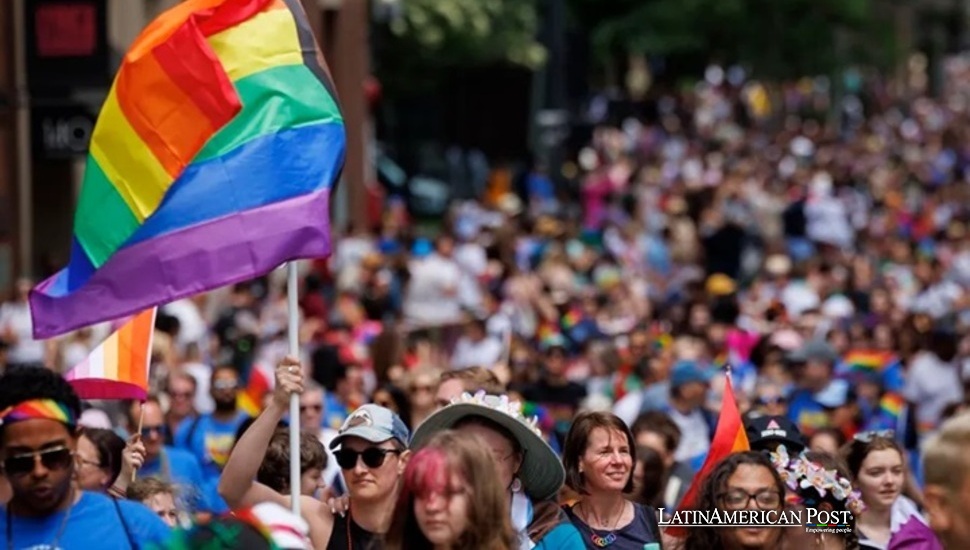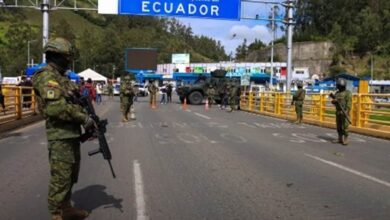Ecuador Must Safeguard Children From Harmful Gender Ideology

In Ecuador, a broad coalition of family-centered organizations is sounding the alarm about court-mandated protocols that promote what they believe to be confusing gender ideas in schools. They argue this infringes upon parental rights and threatens children’s well-being and innocence.
Standing Firm for Traditional Family Values
For many Ecuadorians, parenting means more than giving food, shelter, or education. It also means building a strong moral and cultural base that fits long-held beliefs about gender, identity, or social roles. With the Constitutional Court ruling requiring the Ministry of Education to create protocols for students who question or seek to redefine their gender, numerous family-focused groups now fear this mandate will undermine that cherished parental authority.
These advocates aren’t simply lodging abstract complaints. They see themselves as people who care for Ecuador’s future by looking after the next generation from messages they believe are intrusive or improper. The Court got involved in a conflict over a transgender child and forced people to protest. They say one case does not require all classrooms to adopt such rules. Through peaceful protests, they aim to unite parents to keep their right to decide how they educate their children about identity. They claim that schools stand for learning, not political aims.
Many of those joining these protests also mention their culture and religion. They say the Constitution defends family life and parents’ rights to teach values. This view connects with citizens who believe that changes in education should involve the families affected. Ultimately, they see their objection not as a rejection of any one community’s rights but as a stand for the right of parents to shield their children from potentially confusing concepts that, in their view, do more harm than good.
Questioning the New Protocols
The groups rallying against this recent court decision believe the ruling ventures far beyond addressing one child’s unfortunate experience of mockery at school. They contend it sets a precedent that compels all educational institutions to adopt procedures that normalize what these families consider to be an “ideology,” one they view as unfit for certain developmental stages. Rather than a limited fix for a singular case, the ruling instructs the Ministry of Education to create uniform regulations on how teachers and administrators must handle children exploring alternative gender identities.
For these families, the pivotal concern is that schools might promote concepts of gender fluidity to impressionable youth—even as early as preschool or the elementary grades. The fear is that such discussions, absent parental guidance, could sow confusion about biology, identity, and social norms. They emphasize that children, especially young ones, are amid critical developmental processes; some parents find it deeply troubling to introduce them to ideas they believe might exacerbate that confusion.
From the perspective of these protesters, requiring schools to implement such protocols undermines their parental responsibilities. They insist that if a child displays gender-related concerns, the family, guided by mental health experts of their choosing, should address those delicate issues. In other words, they do not oppose compassion or sensitivity for children who feel gender distress; they oppose what they consider an overreach by the state into moral or psychological territory that families alone should govern.
The families fear that the official approach of the protocols may force practices that conflict with their religious or traditional values. Current laws stop discrimination. Protesters claim that new rules on “gender identity recognition” exceed essential acceptance; they impose ideology. They warn that teachers who do not fully embrace these protocols—perhaps for religious reasons—risk censure, creating a climate of intimidation rather than open dialogue. This, they believe, stifles the academic freedom to discuss gender-related topics from multiple perspectives, including traditional or faith-informed ones.
Preserving the Rights of Parents and Children
Another central theme the protesters stated is that parents have the right to direct their children’s moral and psychological growth. They claim that schools should focus only on academic subjects such as math, science, reading, and history. Sensitive topics like sexuality, gender identity, and personal values, in their view, are best left to the family unit.
While some call this “resistance,” the protesters see it as a natural self-defense against institutions or authorities they believe might intrude on their children’s emotional realm. Ecuador’s Constitution, they say, explicitly protects the family as the fundamental core of society. If that principle is taken seriously, policymakers and judges should refrain from dictating how parents address identity issues at home.
These families also raise the concern that children in the earliest grades, lacking the capacity for nuanced understanding, might be overwhelmed by complex messages about shifting identities. In their view, it is irresponsible to place such burdens on a child who has barely begun to navigate the basics of daily life. While acknowledging that bullying or harassment should never be tolerated, they distinguish between prohibiting cruelty and mandating acceptance of a worldview that conflicts with a family’s convictions.
Some argue that parents who disagree with these new regulations could consider homeschooling or enrolling their children in private institutions aligned with their beliefs. That’s not feasible for many who rely on Ecuador’s public schools. These parents feel the government forces a controversial system on them that cuts their power to shape their children’s morals and spirit.
A Call for Respectful Dialogue
The families cautioning against the Court’s directives hope for a public talk that accepts parental worries. They do not want children checking their gender identity to be hurt or refused kindness. Instead, they want their children shielded from messages they consider out of step with their values or developmentally premature. They’d like to see a balanced approach where teachers and institutions respect families’ beliefs while preventing bullying or unfair treatment of any student, no matter their perceived identity.
These parents also assert that the government should be more transparent about these new protocols. Without clear instructions, they fear the vague text may allow changes to school curricula or teacher instruction that present some views as absolute facts. In contrast, the protesting families asked for an intense consultation process. They think parents, teachers, psychologists, and religious leaders should join table discussions so that policies do not come solely from one point of view or get quickly applied in a way that pits families against educators.
Some government supporters might say these worries are exaggerated or even biased. Families see protecting childhood and keeping parental roles as a duty, not a weak excuse for intolerance. They ask critics to understand that moral beliefs and parental duties are essential, not just simple choices. By having a respectful talk that looks at real problems, they believe Ecuador can create school rules that help every child while keeping traditional values.
Ultimately, the families who marched this week show a broader cultural desire: a will to uphold fundamental beliefs in a changing world. Far from seeking to diminish anyone’s rights, they see themselves as keepers of social and moral traditions they find indispensable. For them, the real question isn’t whether schools should protect vulnerable students from harassment—they firmly agree that no child should be bullied. The actual point of contention is whether this new court-ordered protocol crosses a boundary, pushing an ideological stance into every classroom in a manner that undermines parental prerogatives.
Also Read: Most Latin Americans Do Not Need to Avoid Gluten For Vibrant Health
As these protests continue, many still hope helpful discussions will win. For now, those who back the “traditional family” view hold firm: They will not allow uncertainty or dread to hide their long-held beliefs about how children learn, good behavior, or the special bond between parents and children. They think they have solid legal, cultural, and spiritual reasons and trust that their views matter in shaping Ecuador’s school system.





